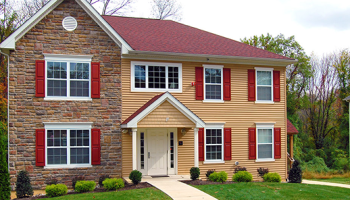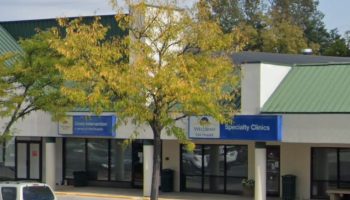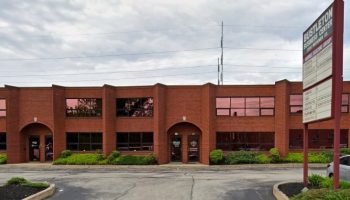About Malvern Treatment Centers
Malvern Treatment Centers is the oldest private addiction treatment center in the region. They’ve been providing care for over 75 years in Willow Grove, Pennsylvania. Clients can come for medical detox, residential or outpatient levels of care. They also offer medication assisted treatment (MAT). They accept many health plans like Beacon, Aetna, Multiplan, Alicare, United and Oxford.
Their detox program gives clients around the clock supervision and monitoring by nurses, clinical assistants and trained technicians. I like that clients also get 82 hours of psychiatric care each week. Going through detox can be scary, and so medications to ease discomfort can be given to patients during their withdrawal process. Medication assisted detox tends to last about eight days. Your dose will be tapered as you stabilize.
Each detox client is assigned a primary counselor, and you’ll begin meeting with them right away. If you choose, you can attend any of the group sessions that are offered to folks in the residential program.
Malvern offers MAT as an inpatient or outpatient program. They are licensed to prescribe many different medications so that clients can choose the one that suits their needs and preferences best.
Vivitrol is a monthly injectable opioid blocker. Just one dose gives you 30 days of reduced cravings for alcohol or opiates as well as blocking the effects of opiates. Suboxone can be used as a detox medication or as a maintenance program. This is a daily dose that is taken under the tongue or inside the cheek. How long you’ll be on MAT depends on your history, your needs and your goals. You’ll spend time discussing the tapering off process with your provider.
Levels of Care
-
Inpatient
Inpatient and residential programs provide round-the-clock medical and emotional support as you live at the treatment facility. This level of care may be recommended if you have severe addictions or mental health conditions since it removes outside distractions and allows you to focus solely on therapy.
-
Outpatient
In outpatient therapy, you’ll attend therapy sessions several times each week while living at home. This is ideal if you have a strong support system and a lower risk of relapse. Outpatient treatment offers flexibility to maintain work, school or family obligations.
-
Aftercare
Aftercare programs provide ongoing support after you complete a rehab program. They may include several components to help you maintain sobriety including therapy, community support groups and relapse prevention strategies. This gives you a network of resources as you reintegrate into your daily life.
-
Dual Diagnosis
Dual diagnosis programs address substance use disorders and co-occurring mental health conditions simultaneously. This integrated approach to care improves the likelihood of long term recovery and stability by addressing the root causes of addiction.
-
Intervention
An intervention is a structured and professionally guided conversation with an individual who is struggling with addiction. During the conversation, family and friends will encourage you to seek treatment. This is often a pivotal step for those resistant to getting help.
Detox Service Setting
-
Inpatient Detox
Inpatient detox occurs in a dedicated treatment facility. You’ll live there around the clock and receive intensive medical support and supervision to help manage your withdrawal symptoms. It is suitable for individuals with moderate to severe addictions as it ensures a stable detox environment.
-
Outpatient Detox
Outpatient detox gives you access to medically supervised withdrawal services while still allowing you to live at home. You’ll attend a clinic for treatment and monitoring. This flexible option is suitable for those with mild to moderate withdrawal symptoms who have strong support systems.
Programs
-
Adult (18+)
Adult programs address the substance use and life challenges specific to adults. Therapists can deliver sessions in individual, group and family settings. Services often include job support and life skills training in a structured environment.
-
Alcohol Detox
Alcohol detox programs offer medical support to help individuals withdraw safely from alcohol. Your care team may use medications to ease your symptoms and provide medical monitoring to address complications.
-
Cognitive Behavioral Therapy
Cognitive behavioral therapy focuses on changing harmful thought patterns and behaviors associated with addiction. You’ll learn healthier coping mechanisms by identifying and replacing negative thoughts. This improves your emotional resilience and decreases your relapse potential.
-
EMDR Therapy
EMDR stands for eye movement desensitization and reprocessing therapy. It helps you process traumatic memories that may underlie addiction. You’ll learn how to reduce emotional distress and begin healing from past events. This makes it effective for trauma related addiction causes.
-
Men
Men's programs address substance use while also considering the social pressures, family roles and mental health concerns that are specific to men. You’ll learn healthy coping mechanisms as you build emotional resilience and develop communication skills.
-
Opioid Detox
Opioid detox uses medications to ease severe withdrawal symptoms. It also includes medical supervision to help you manage potential complications. These services allow you to stabilize and begin a recovery plan.
-
Rational Behavior Therapy
Rational behavior therapy helps you identify irrational beliefs that contribute to an addiction. Challenging and modifying those beliefs helps you develop healthier attitudes and behaviors. This therapy supports long term sobriety and sustainable recovery.
-
Women
Women's programs offer a safe and supportive space to focus on gender specific issues such as trauma, family roles and mental health conditions. Therapists tailor the sessions to address women's needs and foster empowerment in a healing and nurturing environment.
-
Young Adult (18 - 25)
Young adult programs are designed for individuals who are transitioning into adulthood. Topics of discussion typically include identity, independence and peer relationships. Providers may also offer life skills training and career support.
Payment Options
- Payment Assistance
- Medicaid
- Private Insurance
- Self Pay
Accreditations
-
 SAMHSA
SAMHSA
-
 CARF
CARF
Amenities
- Music Room
- Private Rooms
- Yoga Studio
Contact
240 Fitzwatertown Road
Willow Grove, PA 19090




